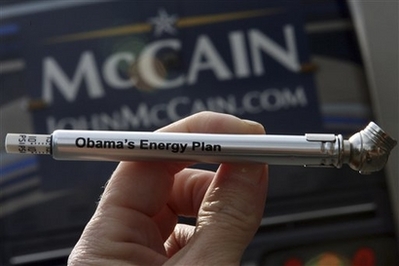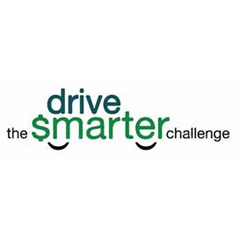Rethinking mobility
1. Rethink is the word that ties together a new advertising campaign by the Saturn automobile division of GM. (GM is the company that lost $15.5 Billion in the last quarter.)

2. The real rethinking necessary is to think beyond the automobile as the primary and preferred form of mobility in the United States.
3. Speaking of which, the Baltimore Sun ran a piece last Sunday by one of their journalists who decided to not drive for one week. She lives 1.79 miles from work, but drives every day. See "Parked."
And the Montgomery County edition of the Gazette newspapers (owned by the Washington Post by the way) have an article about the practicality of carsharing in what heretofore has been considered an automobility paradise (note that for a traditional suburban place, Montgomery County has one of the most successful suburban bus systems, benefits from a number of red line subway stations, and the County Council is a strong supporter of the Purple Line light rail proposal). See " Zipcar: Not just for urbanites anymore."
4. Speaking of rethinking, while many DC neighborhoods rise up against what I think of as surgical increases of density in appropriate places, such as close to subway stations, Montgomery County and Fairfax County are allowing density increases involving mixed use, in particular housing, to White Flint and Tyson's Corner respectively (the latter only if the heavy rail Silver Line is built). This will make these suburban places a lot more urban and walkable.
See " Planners to scale back development in White Flint" from the Gazette and "Planners See Sleek Future For Tysons: On Mall's 40th Birthday, Officials Chart a Makeover" from the Washington Post.

A rendering shows a proposed Metro station along Route 123, with the Tysons Corner Center mall in the background. The Silver Line is to begin between the East and West Falls Church stations and go to Dulles International Airport. Photo courtesy of Fairfax County Planning Commission.
5. Our conservative friends in Congress seem to think that expanding oil drilling is the number one priority for the national government and that Congress should come back to session to authorize this expansion.
6. For some reason, the Examiner thinks this is so noteworthy as to take up an entire page of today's paper: "Mary Katharine Ham: Just go to Don’t Go!"
7. But the Examiner editorial-opinion pages never felt so engaged as by the need to expand transit ("Metro outruns its supply lines") or the need for Virginia to deal with its transportation crisis. Maybe because the owner of the Examiner is a big oilman. (I don't really think that's why, but it is telling that the Examiner has a weekly section on "Wheels" but dropped its daily column on mobility issues--that column did cover freeways but also transit and other issues.)
8. Meanwhile John McCain makes fun of Senator Obama for allegedly saying that the best thing drivers could do is "inflate their tires." (Not to mention that it's seriously misleading to state that such advice is the foundation of the Obama energy policy.)

A tire pressure gauge distributed by the campaign of Republican presidential candidate, Sen. John McCain, R-Ariz., with the writing 'Obama's Energy Plan' is photographed Wednesday, Aug. 6, 2008, in Dublin, Ohio. (AP Photo/Mary Altaffer)
9. Ironically, ExxonMobil thinks that properly inflating tires is pretty important, according to their ad on page A19 of today's Washington Post, which lists of number of gasoline efficiency measures.

The text of this ad is available here. From the ad:
U.S. motorists can save money and strengthen energy security.
The average U.S. motorist drives over 13,000 miles each year and buys about 650 gallons of gasoline. That’s a significant expense for most American households. But by “driving smarter” — finding ways to get more miles out of a tank of fuel — Americans can save hundreds of dollars a year in fuel costs. Driving smarter doesn’t just save money. It reduces gasoline consumption, which can help drive down costs and strengthen U.S. energy security. And it reduces greenhouse-gas emissions.
The United States consumes close to one-quarter of the world’s oil, and much of the oil we use fuels our cars and trucks. Americans own approximately 30% of the world’s automobiles.
So when U.S. motorists take steps to use gasoline more efficiently, it adds up.
The Alliance to Save Energy, together with ExxonMobil and 16 other diverse private- and public-sector partners, has launched the “Drive$marter Challenge” to highlight ways to use gasoline more efficiently. For example:
Keep your tires properly inflated. This improves gas mileage by about three percent, and over a year can save up to 20 gallons of gasoline.
Use the motor oil recommended for your vehicle. This can improve gas mileage by one to two percent.
Reduce your miles traveled. Combine several errands into one trip. Consider carpooling, walking, biking or taking public transportation.
Avoid aggressive driving. Speeding, as well as rapid braking and accelerating, can reduce mileage by up to 33 percent at highway speeds.
Clean out your trunk. Carrying an extra 100 pounds cuts a typical car’s fuel economy by up to two percent, consuming about 12 gallons of fuel a year.
10. Even though I don't support expanding U.S. oil drilling, I am willing to support it in return for five other policy changes, _if they are included in the same bill_:
a. A massive increase in the federal gasoline excise tax.
b. A change in the Federal Transit Administration's policies and methods for evaluating transit projects, to favor longer periods for return on investment, particularly of land use improvements, and to eliminate their bias in favor of buses.
c. A recission of the recent Congress-imposed sanctions on public transit systems from providing bus services that could be offered by the private sector. (See for example, "Federal Transit Authority to Redskins Fans: Get to Steppin" from the Examiner for an explanation of the change, which I have blogged about in the past.)
d. A massive increase in the amount of federal funding provided to transit development and expansion.
e. Rethinking national and regional railroad services, including Amtrak, especially vis-a-vis airplane service, for trips under 500 miles, and increasing funding, without putting private sector inducements into the legislation (such as bills put forward by Rep. John Mica).
11. More and more I think that government and politics is about putting off the hard decisions, and favoring well-connected interests as long as possible.
After all, Winston Churchill said it best:
"Americans can always be counted on to do the right thing...after they have exhausted all other possibilities."

Tom Toles editorial cartoon, 8/7/2008.
Labels: electoral politics and influence, energy, transit



0 Comments:
Post a Comment
<< Home